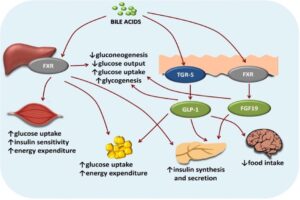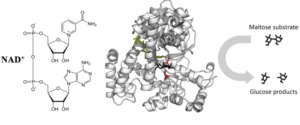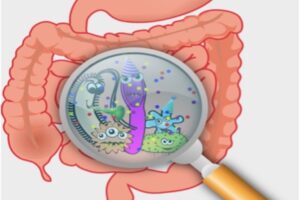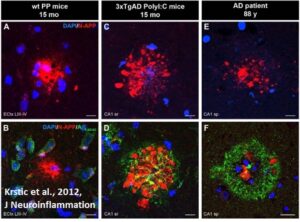
Figure: Curly Fries and a Burger. (Source: Flickr)
“You are what you eat”. It’s a catchy phrase, one that reminds you to eat your fruits and veggies and maybe only enjoy an occasional cheeseburger or two. However, in the past decades, we’ve seen an increase in health issues like blood pressure, obesity, and heart disease, and it can all be linked to food consumption. About one- fourth of Americans eat fast food daily, and 50% of college students admit to eating fast food thrice a week (Smead, 2018). This is largely due to how quickly one can get a meal from a fast-food restaurant. One of the definitions of fast-food states that it is “designed for ready availability, use, or consumption and with little consideration given to quality or significance” (Merriam-Webster). In fact, the iconic logos of chain restaurants like McDonalds, Taco Bell, Dominos, and Starbucks have become a part of everyday life for millions (Benshosan, 2019). As people get progressively busier, they turn to fast-food because of the convenience and accessibility. But what are the effects this can have on one’s health? Pretty detrimental ones, as it turns out.
Fast foods are known to contain large amounts of sodium, sugar, saturated and trans fats, and processed ingredients. This can cause numerous issues for one’s health, such as heart disease due to large amounts of sodium or digestive issues from the lack of fiber in fast food. Another severe effect fast food can have is on your mental health, as eating lots of fast food could make a person prone to anxiety or depression (Cleveland Clinic, 2021) . One study has found that people who eat lots of fast food, as well as pastries that have been processed, are about 51% more likely to experience depression (Sánchez-Villegas et al, 2011). Another interesting effect that fast food has on your body is that it drains your energy and makes you more tired. A balanced and nutritious meal helps to provide energy for you slowly and throughout the day, but the amount of sugar in fast food causes a spike in your blood sugar. To bring that back down, your body then produces insulin quickly, making you more tired than usual (Cleveland Clinic, 2021).
While awareness has increased on the negative impact fast-food has on one’s health, fast food consumption in the US remains unchanged for the most part. Overall revenue of the fast food industry has grown in the past few decades. In the 1970s, the fast food industry was making about $6 billion dollars annually. Adjusted for inflation, this would be $44,707,577 today. However, today the industry makes about $570 billion, globally (Morelli, 2021). That would mean that people are spending significantly more on fast food today than in previous decades. In fact, according to data from the Bureau of Labor Statistics, millennials spend over 40% of their food budgets on food from outside home (Pietrangelo, 2018).
Burgers are one of the most popular fast-food options, and Americans eat about 50 billion burgers a year. According to the USDA, that’s an average of 2.4 burgers a day (Fleming, 2020). Burgers are made from red meat, and red meat is responsible for a tremendous deal of health issues, most importantly raising the risk of heart disease. According to the CDC, about 647,000 Americans die every year due to heart disease (Hart, 2020). That means that annually, 1 in 4 deaths in the US is due to cardiovascular disease (Centers for Disease Control and Prevention, 2022). This is largely due to a compound called trimethylamine-N-oxide.
Trimethylamine-N-oxide (TMAO) is actually not a compound that humans produce themselves, but is a metabolite that is formed by gut microbes. TMAO is formed when compounds like choline interact with the microbes in the gut, and red meat is choline-rich. When choline interacts with trimethylamine, it forms TMAO (Beckman et al, 2020). When consuming foods that are rich in choline, such as red meat, the presence of trimethylamine in the gut will metabolize the choline into trimethylamine-N-oxide, which then is responsible for hardening the arteries, leading to cardiovascular disease. Moreover, trimethylamine- N-oxide is also known as a proatherogenic metabolite, meaning that it encourages the fatty buildup of arteries. In humans, TMAO is associated with atherosclerotic coronary artery disease (Senthong et al, 2016).
However, there are some studies that have found that red meat may have some benefits. One study concluded that red meat is essential for protein and heme iron to prevent anemia (Omaye, 2019). This study, and others like it, push back on the largely negative perception of red meat. Nonetheless, there are numerous studies that claim the opposite, so a careful approach to assessing the effects of red meat is warranted, especially one that considers the dangers of red meat but also recognizes that red meat may be okay in moderation. Therefore, different people should weigh the evidence and come to conclusions on what is best for their own health.
And so it is true of fast-food in general. The effects of fast-food consumption and out of home eating has on your body can lead to cardiovascular disease and obesity, mainly due to the lack of nutrients these food options possess (Bahadoran, 2016).
That’s not to say all fast food is terrible for you. There are healthy and nutritious options and having a burger every once in a while won’t hurt you. However, that does not negate the effects of high fast food consumption. It’s important to be mindful of your health and make time to make sure you are making yourself meals that promote a healthy lifestyle and a balanced diet.
References
Bahadoran, Z., Mirmiran, P., & Azizi, F. (2016, January 30). Fast Food Pattern and cardiometabolic disorders: A review of current studies. Health promotion perspectives. Retrieved April 8, 2022, from https://www.ncbi.nlm.nih.gov/pmc/articles/PMC4772793/
Beckman, J. A., & Shibao, C. A. (2020). Trimethylamine-N-oxide, more red meat for the vascular scientists. Hypertension, 76(1), 40–41. https://doi.org/10.1161/hypertensionaha.120.14857
Benshosan, April. “50 Biggest Fast Food Chains in America: Eat This, Not That!” Eat This Not That, April 17, 2019, https://www.eatthis.com/biggest-fast-food-chains-america/.
“Fast-Food Definition & Meaning.” Merriam-Webster, Merriam-Webster, https://www.merriam-webster.com/dictionary/fast-food.
Fleming, Esther. “Home.” SidmartinBio, 30 Dec. 2020, https://www.sidmartinbio.org/how-many-burgers-are-eaten-in-the-us-every-year/.
Hart, Karen. “When You Eat a Hamburger Every Day, This Is What Happens to Your Body.” Mashed.com, Mashed, 29 Aug. 2020, https://www.mashed.com/241486/when-you-eat-a-hamburger-every-day-this-is-what-happens-to-your-body/.
“Heart Disease Facts.” Centers for Disease Control and Prevention, Centers for Disease Control and Prevention, 7 Feb. 2022, https://www.cdc.gov/heartdisease/facts.htm.
“Here’s How Fast Food Can Affect Your Body.” Cleveland Clinic, Cleveland Clinic, 27 Jan. 2021, https://health.clevelandclinic.org/heres-how-fast-food-can-affect-your-body/.
Michael Morelli. “1970s Vs 2020 – How the Nutritional Norm Is Killing You ” Michael Morelli.” Michael Morelli, 14 June 2021, https://michaelmorelli.com/1970s-vs-2020-how-the-nutritional-norm-is-killing-you/.
Omaye, A. T., & Omaye, S. T. (2019, November 12). Caveats for the good and bad of dietary red meat. Antioxidants (Basel, Switzerland). Retrieved April 8, 2022, from https://www.ncbi.nlm.nih.gov/pmc/articles/PMC6912709/
Pietrangelo, Ann. “13 Effects of Fast Food on the Body.” Healthline, Healthline Media, 17 Sept. 2018, https://www.healthline.com/health/fast-food-effects-on-body.
Sánchez-Villegas, A., Toledo, E., de Irala, J., Ruiz-Canela, M., Pla-Vidal, J., & Martínez-González, M. A. (2011). Fast-food and commercial baked goods consumption and the risk of depression. Public Health Nutrition, 15(3), 424–432. https://doi.org/10.1017/s1368980011001856
Senthong, V., Wang, Z., Fan, Y., Wu, Y., Hazen, S. L., & Tang, W. H. (2016). Trimethylamine n ‐oxide and mortality risk in patients with peripheral artery disease. Journal of the American Heart Association, 5(10). https://doi.org/10.1161/jaha.116.004237
Smead, Spencer. “America’s Fast Food Obsession – Colby College.” Global Food, Health, and Society , 29 Oct. 2018, https://web.colby.edu/st297-global18/2018/10/29/americas-fast-food-obsession/.
Related Posts
Genetic Cheating? Identifying CRISPR/Cas Gene Doping
Figure 1: Lance Armstrong, a well-known professional cyclist, has been...
Read MoreBile Acid-Induced Satiety to Treat Obesity
Figure 1: Diagram of the effects of bile acids on...
Read MoreWhy Do We Really Need Vitamins?
Figure 1: This figure illustrates the interaction between an enzyme,...
Read MoreSARS-CoV-2 is not the only virus living among us
Figure 1: The human gut is home to a rich...
Read MoreExploring the Gut-Microbiota Hypothesis of Neurodegenerative Disease Pathogenesis
First Author: Jillian Troth1 Co-Authors [Alphabetical Order]: Caroline Conway1, Allison...
Read MoreA Spoonful of (Modified) Sugar as an Antiviral Medicine
Figure 1: A negative stain transmission electron micrograph of Influenza...
Read MoreFeba Varughese






